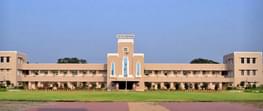Dr. Prasad Rayi, is an Associate Professor and the Head of the Department of Electronics and Communication Engineering at the International School of Technology and Sciences for Women. He obtained his B.Tech. degree from Nagarjuna University and his M.Tech. from Andhra University in 2010. Thereafter, he obtained his PhD degree from Nagarjuna University. He has a total experience of 19 years and has successfully completed a course on “Fundamentals of IoT” from Stanford University. Dr. Rayi has presented and published 25 papers in various national and international journals, including IEEE. He has been presently working as a reviewer for IEEE ACCESS, IET, IETE, Elsevier, Springer, Taylor & Francis, and other reputed journals for which he has completed a total of 85 review papers. He was a keynote speaker for several faculty development programs.

You have held key positions at education institutes throughout your professional career. What are the key factors that keep you connected with the education sector?
I feel that learning is a great pleasure and fun for me. I have been interested in teaching since my childhood. I have always had a passion for teaching and I have chosen to work in the teaching area since I have always wanted to be a professor. Teaching as an engineering professional is always a great challenge and tough task but it provides immense joy and happiness. There are gaps between academia and industry that need to be filled, and the current curriculum does not provide enough practical experience. I have been able to craft the students to improve their technical knowledge by adapting research culture, sharpening skills, and making them future techno-carts.
Being the HOD of ISTS of engineering for women what is your philosophy of leadership? How would you describe your leadership style?
I have been working as the head of the department in the department of Electronics and Communication Engineering since 2018. In my opinion, a leader has to lead the team from the backend and provide a good culture for teamwork to unite the team. Women are behind, lagging in technology knowledge in rural areas of our country. Moreover, it is a challenge to train the students to get them job opportunities to enable them to compete with urban students. To do this, students need proper teaching and learning methodologies. In addition to this, students have to improve their soft skills to become trained technocrats who will transform into future entrepreneurs and global leaders to meet the current requirements of the industry.
The education systems in India and other foreign countries are structured very differently. In your experience, what can an inbound student gain from studying here in your institute?
I have observed three fundamental differences between the foreign and Indian education systems. The primary one is that the curriculum was designed with more practical exposure in foreign universities that meet the needs of industry. Whereas our curriculum was planned as concept concept-oriented approach when it is compared with foreign universities. Assignments are an integral part of foreign universities and submission of assignments should be unique. Here, assignments are not unique and seem to be copy-cats in Indian universities. In international universities, industry-academia collaboration is highly dominated and this is less observed in the Indian education system.
How does the curriculum of ISTS engineering for women ensure the best practice of industry?
Our college was affiliated with both the National Board of Accreditation (NBA) and the National Assessment and Accreditation Council (NAAC) in 2022 and granted autonomous status in 2023. We designed a curriculum that primarily focuses on both outcome and skill-based education. The curriculum of ISTS is implemented in consideration of National Education Policy (NEP) 2020, which comprises both core and multi-disciplinary courses. We also introduced skill-based courses such as soft skills, aptitude, and reasoning courses for the benefit of students in the curriculum. We designed four internships from various companies each year to fill the gap between industry and academia. We have implemented two technical projects; one is treated as a mini-project in the third year and the other is a major project done in the final year. To create awareness of society, we have also designed a community-based project in the third year.
Check International School of Technology and Sciences for Women Courses & Fees
What do you think should be the Institute's top priority over the next 5 years?
We have revived the research centre at JNTU Kakinada. We are planning to strengthen the research centre, which will mainly focus on various innovative research and collaborative projects with the industry. We are also planning to improve the quality of publications, both from the faculty fraternity and the student community. We have started an incubation and an entrepreneurship-cell at our campus in 2023 and we are inviting innovative ideas from students in all disciplines. The best ideas will be transformed into patents and implemented in real-time applications. At the same time, we are also planning to transform our ISTS into one of the prominent women deemed universities.
What do you see as your Institute's greatest strengths?
ISTS has been rising as the most prominent destination for women's education for the last 13 years in Andhra Pradesh and Telangana states. We have all major programs with 5000+ students on our campus, such as diploma, B.Tech., M.Tech., MBA, and MCA. We have 200 well-qualified and dedicated faculty members in all disciplines, many of whom have PhD degrees. Our college provides the best and most modern amenities, such as wifi, RO-drinking, a water plant, a book store, a multi-cuisine canteen, a gym and multiple sports facilities. All our laboratories are well equipped with computers and spacious classrooms.
What would you like people to know about your college they may not know?
We are transforming the lives of ordinary girls from rural backgrounds into superwomen. Our students have been able to secure jobs in both the core and software sectors at attractive packages. We have been achieving 100% placements for the last five years. We have also been securing more than 90% pass percentage consistently in all disciplines for the last eight years and also achieving university gold medals. Our institution provides high security for all girls with CCTV cameras with 24/7 monitoring.
Any message you would like to give to the current youth and the aspiring students?
Today's young generations are highly talented and skilled people. The only thing you need is some desire and the ability to think big to achieve your goals. Don’t be afraid of failure and you should treat failures as stepping stones to success. It would help if you worked hard with interest, then you would reach the mountain-top quickly. I wish that you have bigger, bolder and brighter futures.

![International School of Technology and Sciences for Women -[ISTS]](https://image-static.collegedunia.com/public/college_data/images/logos/1699697324ISTSLogoshortNew.jpg?h=71.7&w=71.7&mode=stretch)











![Aditya College Of Engineering and Technology - [ACET]](https://image-static.collegedunia.com/public/college_data/images/appImage/15251_app image aditya.png?h=111.44&w=263&mode=stretch)



![BVC Institute of Technology and Science - [BVCITS]](https://image-static.collegedunia.com/public/college_data/images/appImage/13103_BVC_APP.jpg?h=111.44&w=263&mode=stretch)










.png?h=72&w=72&mode=stretch)
.png?h=72&w=72&mode=stretch)

 (4).jpeg?h=72&w=72&mode=stretch)
 (2).jpeg?h=72&w=72&mode=stretch)
.png?h=72&w=72&mode=stretch)
.jpeg?h=72&w=72&mode=stretch)

![Gayatri Vidya Parishad College of Engineering For Women - [GVPW]](https://image-static.collegedunia.com/public/college_data/images/logos/1479906084logo-vidyaparisad.png?h=72&w=72&mode=stretch)
![Rajamahendri Institute Of Engineering & Technology-
[RIET]](https://image-static.collegedunia.com/public/college_data/images/logos/1479966353logo 301_0.png?h=72&w=72&mode=stretch)
![Aditya Engineering College - [AEC]](https://image-static.collegedunia.com/public/college_data/images/logos/1591109396Annotation20200602201850.jpg?h=72&w=72&mode=stretch)
![Vignan's Nirula Institute of Technology and Science for Women -[VNIW]](https://image-static.collegedunia.com/public/college_data/images/logos/1603362674Logo.jpg?h=72&w=72&mode=stretch)

![Kakinada Institute of Technology and Science - [KITS]](https://image-static.collegedunia.com/public/college_data/images/logos/1416475917Capture1.jpg?h=72&w=72&mode=stretch)
![Avanthi's Research and Technological Academy - [ARTA]](https://image-static.collegedunia.com/public/college_data/images/logos/1709269554artalogo1.png?h=72&w=72&mode=stretch)
![Guntur Engineering College - [GEC]](https://image-static.collegedunia.com/public/college_data/images/logos/15031202261418726385gunturlogo.jpg?h=72&w=72&mode=stretch)
![Sri Vasavi Engineering College - [SVEC]](https://image-static.collegedunia.com/public/college_data/images/logos/1480324648vasavi logo.gif?h=72&w=72&mode=stretch)

![Kakinada Institute of Engineering and Technology for Women - [KIET-W], Kakinada](https://image-static.collegedunia.com/public/college_data/images/logos/1545981460kiet1.jpg?h=72&w=72&mode=stretch)
![Vijaya Institute of Technology for Women - [VITW]](https://image-static.collegedunia.com/public/college_data/images/logos/1480066332logo_content.png?h=72&w=72&mode=stretch)

![Shri Vishnu Engineering College for Women - [SVECW]](https://image-static.collegedunia.com/public/college_data/images/logos/1596608177Logo.jpg?h=72&w=72&mode=stretch)
![Godavari Global University - [GGU]](https://image-static.collegedunia.com/public/college_data/images/logos/1708510162channels4profile.jpg?h=72&w=72&mode=stretch)

Comments